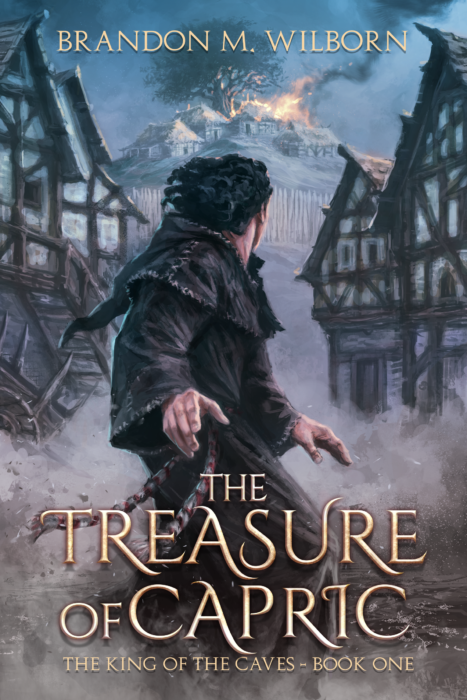Evil Is a Dangerous Beauty
Why is evil so appealing?
By evil, I don’t mean the behaviors reserved for the worst villains: things like genocide, terror, slavery, and mayhem. Most people are turned off by the thought of engaging in those actions at the outset.
I mean the more mundane forms of wickedness: little lies, betrayal, petty theft, a second look, secrets, anger, meddling, foolishness—the sorts of things we’re willing to excuse in a character we like because “they didn’t have a choice,” or, “they meant well,” or even worse, “this sets up a great redemptive story arc.”
There’s a simple answer: these things that appear so beautiful, appealing, and sometimes truly good, are an expertly laid trap.
In the beginning, our Creator set us in a world of unimaginable beauty and unimaginable freedom. He called it very good. He gave us sustenance for our bodies, the divine and human relationships that feed our souls, and meaningful work to satisfy our hearts. It was good. And it was beautiful.
The first temptation in Genesis 3 focuses on something that seems good on the surface; the knowledge of good and evil, wisdom, a little bit more of the image of God than the first humans apparently had. In their eyes, the conclusion felt right and good. What could be more beautiful than aspiring to be like the Creator?
Verse 6 emphasizes the desirous nature of the fruit, saying, “When the woman saw that the fruit of the tree was good for food and pleasing to the eye, and also desirable for gaining wisdom, she took some and ate it.”
Regardless of good intent, it seems clear that the knowledge of good and evil could not be learned from books. It had to be learned through transgression. The first temptation was appealing because God made good things. The serpent used the beauty of God’s creation against us and the first family had few defenses against the cunning of an enemy already familiar with rebellion. Of course, the temptation usually pushes against what God has already told us.
The sad part is, we’re slow to learn the lesson. It’s still one of his favorite tricks, though some of our best storytellers try to warn us.
In Tolkien’s epic of the Ring of Power, the ring itself stands-in for the concept of sin and temptation. It is beautiful. It promises great power that can build kingdoms and deter evil. But it is a false promise that only distorts the user. The Ring, being fully under the sway of the enemy, consistently turns its users plans to ruin. Simply possessing the ring threatens to destroy Frodo’s soul.
Just as in our own fall, this primary deceiving threat spawns smaller temptations that threaten the characters in the story. A poignant example is the mirror of Galadriel. First, Samwise is tempted to abandon the fellowship for the good of saving the Shire. Then Frodo offers the ring willingly to Galadriel, though strong leaders have already refused their opportunity to take it up. Her rejection reveals the folly of trusting in good intentions:
“In place of a Dark Lord you will set up a Queen. And I shall not be dark, but beautiful and terrible as the Morning and the Night! Fair as the Sea and the Sun and the Snow upon the Mountain! Dreadful as the Storm and the Lightning! Stronger than the foundations of the earth. All shall love me and despair!”
Indeed, for men especially, mere physical beauty, like that of a powerful elf queen, is danger enough. C. S. Lewis uses this idea effectively in both The Magician’s Nephew and The Lion, the Witch and the Wardrobe, when the White Witch, Queen Jadis, meets the young boys Digory, and then Edmund. Both find her strikingly beautiful, if a little intimidating. They are willing to give her beauty the benefit of the doubt until she reveals her sadistic cruelty. Of course, then it is too late to resist.
In my own works, The Treasure of Capric and Siren Silence, the danger of temptation through beauty is a significant theme because of its prevalence in our modern culture. Cpt. Fallon, a soldier hunting the hero’s company, is haunted by an intimate encounter with a witch. At the same time, the protagonist, Kurian, is nearly lost to the seductive song of the sirens.
Through innumerable examples, both fictional and biblical, we see that what appears good and beautiful may be dangerous to our souls when wielded by our enemy.
But another type of beauty is revealed—still dangerous, but in a different way.
When the ancient Israelites experienced it, they asked Moses to go up the mountain and intervene for fear they would die. When the prophet Isaiah saw it, he cried out, “Woe to me! I am ruined! ” It caused David and his son to write glorious poems, and when Saul, the scourge of the nascent church witnessed it, he was blinded for three days.
Tolkien and Lewis present it in the joyous songs of their creation stories. I weave it into The Treasure of Capric as a song voiced by a gentle, timeless man, which the young Kurian feels will unravel him.
It is the beauty and holiness of the Lord. In contrast to the manipulations of our enemy, who is capable of appearing as an angel of light, this is true beauty and true goodness.
It is dangerous—but only to our false-selves and to the sin passed through our genealogy and carried on in our hearts and actions. That beauty is frightening because the transgression is so much a part of us that it feels detrimental to lose it. It feels threatening to accept the Savior’s offer to take the weight of it for us.
Still, the simple choice stands before us: beauty that endangers our souls with false promises, or beauty that threatens our wickedness but promises the life of God.
The Treasure of Capric is available now. Lorehaven magazine says:
“With The Treasure of Capric, first installment in the King of the Caves series, Brandon M. Wilborn blends Brother Cadfael with Prince Caspian to conjure a complex, lived-in world populated by fully realized characters.”
Read the complete review in Lorehaven magazine’s fall 2019 issue.









































Sounds like a very interesting story premise!
Women also have a struggle with temptation to “bad men.”
Men are seduced by the Infernal Venus or the femme fatale.
We women are seduced by the Infernal Cupid or the homme fatal. We desire him not despite–but because of his wickedness. Hence the insane popularity of Fifty Shades and other dangerous nonsense.
Sorry Brandon. I kind of got offtrack from the point of your essay.
The Treasure of Capric sounds good. There is a horror to God’s holiness we seldom discuss in church.
I wonder if Lovecraft dreamed up his cosmic existential horrors to avoid the holiness of the rightful King of the universe.
Thanks for the thoughtful response. I fully agree with the universality of those temptations. They sometimes take a different angle of attack though. The more terrifying aspect of holiness is not something I’ve seen addressed in literature, except maybe in the “longing” CS Lewis discussed. In my own work it’s only hinted at.
Psalm 27 has been a strong prayer of mine lately, especially living in the beauty of His presence.